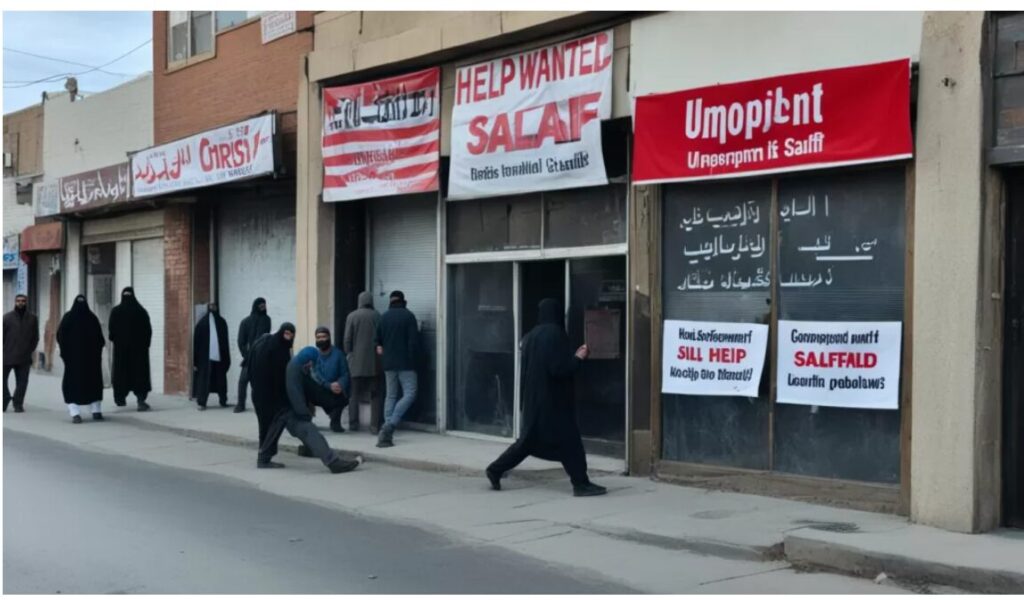A Growing Concern Unemployment is a rising issue in many communities, but in Salafi Muslim circles, it appears to be disproportionately high. Reports suggest that unemployment among Muslim men in Salafi communities can hover around 40% in some areas—a striking figure that begs deeper understanding. This isn’t just about jobs; it’s about identity, faith, dignity, and how the values of a devout group interact with modern economic demands.
What Is Salafism and Why It Matters Salafism is a conservative branch within Sunni Islam that promotes a return to what is believed to be the pure practices of the early Muslims (Salaf al-Salih). It emphasizes strict adherence to the Qur’an and Sunnah, often interpreting them literally.
While this devotion leads to strong moral values and community cohesion, it can also create friction with the norms of the modern job market. The boundaries set by Salafi teachings—such as gender segregation, dress codes, and avoidance of certain industries—can narrow employment opportunities.
“The best among you are those who are best to their families.” — Prophet Muhammad 🙏 (Tirmidhi)
The emphasis on personal piety can sometimes conflict with secular career paths, not out of rebellion, but out of conscience.
Key Barriers to Employment in Salafi Communities
1. Education and Skills Gap
Many Salafi families prioritize religious learning over secular education. While spiritual education is valuable, this can lead to a gap in practical job skills. Without access to vocational training or higher education, many young men enter the job market underprepared.
2. Religious Constraints
Some jobs are seen as impermissible due to religious rulings. For instance, employment involving music, banking with interest (riba), or environments with free gender mixing may be avoided. While this is a matter of personal belief, it significantly narrows job options.
3. Discrimination and Misunderstanding
Beards, long garments, or conservative dress can sometimes make Salafi men targets of suspicion or misunderstanding in the broader society. Employers may perceive them as rigid or unfit for team settings, leading to biases in hiring.
4. Economic Disadvantage
Many Salafi families live in lower-income neighborhoods with fewer job opportunities, poor infrastructure, and limited access to job training programs.
Real-Life Consequences: More Than Just Money Unemployment is never just a statistic. For many men, especially in traditional roles, work is tied to self-worth, responsibility, and purpose. In Salafi communities, prolonged joblessness can lead to:
- Family strain: Wives or extended family often become sole breadwinners.
- Social isolation: Men may withdraw from community participation out of shame or pressure.
- Mental health issues: Anxiety, depression, and even loss of faith can result.
“Poverty almost leads to disbelief.” — Prophet Muhammad (Peace Be Upon Him)
While the Hadith above is debated in authenticity, it reflects the seriousness of economic stress in Islam.
The Positive Side: Strengths in Salafi Communities It’s important to note that Salafi communities also possess resilience. Their commitment to family, moral conduct, and self-discipline can be strengths in any workplace. There are also success stories of Salafi entrepreneurs, educators, and tech workers who have carved ethical paths in their careers.
A Way Forward: Constructive Solutions
1. Tailored Education Programs
Islamic centers and governments can partner to offer vocational training that respects religious boundaries. For example, digital marketing, coding, halal entrepreneurship, and Islamic finance are viable options.
2. Community Engagement
Imams and community leaders can promote the idea that earning a halal income is not only permissible but praiseworthy. Shifting the narrative can make it easier for men to pursue careers without guilt.
3. Employer Sensitivity Training
Workplaces should be encouraged to understand the cultural and religious practices of Salafi Muslims. Simple accommodations like prayer breaks and modest dress policies can go a long way.
4. Youth Mentorship Programs
Connecting young Salafi men with mentors who have succeeded in integrating faith and career can offer real-world guidance and hope.
Conclusion: Balancing Faith and Livelihood The issue of unemployment among Salafi Muslim men is complex, touching on theology, economics, education, and social policy. It’s not about blame—it’s about understanding and action.
Finding balance is not only possible, it is necessary. Islam encourages self-reliance, dignity through work, and contribution to society. With the right support, Salafi men can remain steadfast in their faith while becoming active participants in the workforce.
And that, in turn, can uplift not just individuals, but entire communities.
FAQ
Q: Is Salafism the main cause of unemployment?
Not solely. While religious interpretations can shape job choices, many external factors like poverty, lack of education, and discrimination also play a big role.
Q: Are there successful Salafi professionals?
Yes. Many Salafi Muslims have found ways to work ethically in tech, education, business, and religious services while maintaining their values.
Q: What can communities do to help?
Invest in practical education, promote positive role models, and engage employers to build bridges of understanding.
Source Links
- Islamism, Salafism, and jihadism: A primer | Brookings
- Project MUSE – Being Young, Male and Muslim in Luton
- The Development of Salafism in Britain | The Making of a Salafi Muslim Woman: Paths to Conversion
- Contemporary Future of Salafism Rule in the Muslim World
- Empowering Women: Top Nations Leading Change

